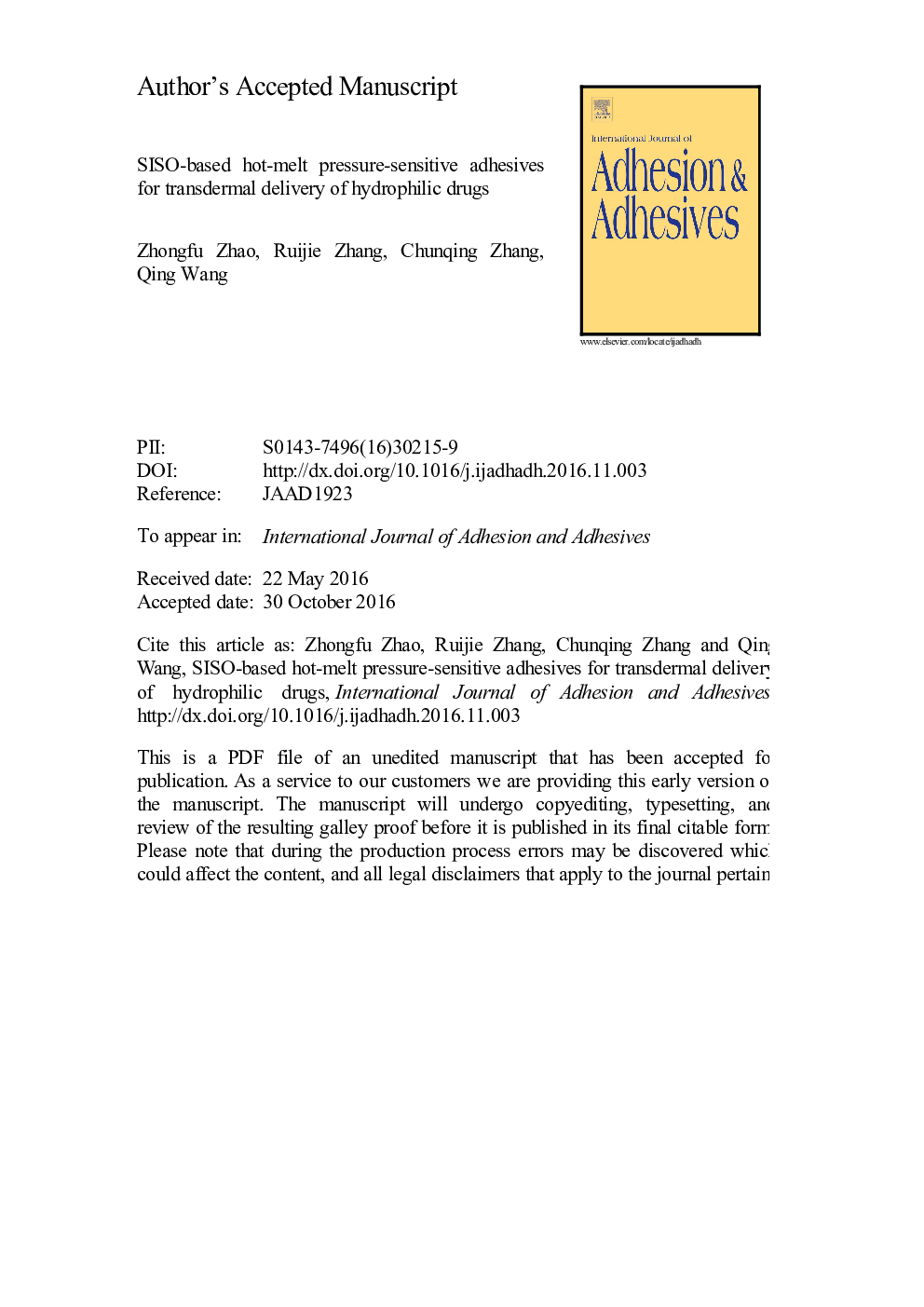| Article ID | Journal | Published Year | Pages | File Type |
|---|---|---|---|---|
| 5014739 | International Journal of Adhesion and Adhesives | 2017 | 19 Pages |
Abstract
A monomer-activated anionic polymerization approach was utilized to synthesize poly(styrene-b-isoprene-b-styrene-b-ethylene oxide) tetrablock terpolymers (SISO), which were melt-mixed with tackifiers and plasticizer to develop polar SISO-based hot-melt pressure-sensitive adhesives (HMPSAs) for transdermal delivery of hydrophilic drugs. Their hydrophilic performance was characterized using contact angle analysis. Their adhesive performances were measured in terms of 180° peel strength and holding power. In vitro drug release experiments were carried out using a modiï¬ed Franz type horizontal diffusion cell, in which geniposide was chosen as a hydrophilic model drug. The results show that poly(ethylene oxide) (PEG) blocks exhibit substantial effects on adhesive performance and the release behavior of the model drug. The shorter PEG molecular chains enhance adhesive performance and the cumulative release rate of the model drug in the SISO-based HMPSAs. The longer PEG molecular chains tend to crystallize. Their crystallization structures have negative effects on adhesive performance and limit the dissolution and diffusion of drugs in the SISO-based HMPSAs. Therefore, appropriate PEG molecular chains are required to fabricate SISO-based HMPSAs with excellent adhesive performance for transdermal delivery of hydrophilic drugs.
Related Topics
Physical Sciences and Engineering
Engineering
Mechanical Engineering
Authors
Zhongfu Zhao, Ruijie Zhang, Chunqing Zhang, Qing Wang,
